The Lord’s Supper
| Weight | 0.24 lbs |
|---|---|
| Dimensions | 7.13 × 4.75 × 0.3 in |
| ISBN | 9780851518541 |
| Binding | Paperback, eBook (ePub & Kindle), Paperback & eBook (ePub & Kindle) |
| Topic | Encouragement, The Church, The Lord's Supper |
| Original Pub Date | 1665 |
| Banner Pub Date | Feb 27, 2004 |
| Page Count | 96 |
| Format | Book |
| Series | Puritan Paperbacks |
‘The Word brings us to Christ. The sacrament builds us up in him.’
Book Description
To Thomas Watson, the Lord’s Supper was a visible sermon, a mirror in which to gaze on the sufferings and death of Christ. ‘God, to help our faith, does not only give us an audible Word, but a visible sign.’ But more than this, the Supper was a time in which to partake of the benefits of Christ’s death by faith, to be fed and cherished by the Lord in his own banqueting house, and to obtain a foretaste of the glory which will be fully realized only in heaven. Watson’s aim was to stimulate greater love to Christ in His people, and to enhance their appreciation of the Supper as a spiritual feast for all believers. His fine exposition shows the rich provision made in the Supper for all who love the Lord, while it also lays bare the emptiness of all mere sacramentalism.
Table of Contents Expand ↓
| Epistle to the Reader | vii | |
| Publisher’s Foreword | ix | |
| 1 | The Mystery of the Lord’s Supper | 1 |
| 2 | The Consecration of the Elements | 7 |
| 3 | The Benefits of the Lord’s Supper | 16 |
| 4 | Christ’s Love Displayed in the Sacrament | 22 |
| 5 | The Broken Body of Christ | 28 |
| 6 | The Blood of Christ | 33 |
| 7 | Self-Examination | 39 |
| 8 | True and False Faith | 48 |
| 9 | Objections against Coming to the Sacrament | 60 |
| 10 | Thankfulness to God | 74 |
| 11 | Comforts to Believers, and Warnings to | 79 |
| Unbelievers |
You may also like…
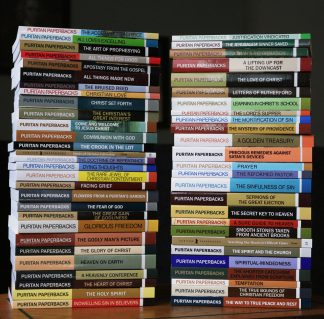
Puritan Paperback Series
49 Volume Set
Description
Watson’s fine exposition shows the rich provision made in the Supper for all believers, and lays bare the emptiness of mere sacramentalism. 96pp.
More items to consider:

Description
Watson’s fine exposition shows the rich provision made in the Supper for all believers, and lays bare the emptiness of mere sacramentalism. 96pp.

Description
Watson’s fine exposition shows the rich provision made in the Supper for all believers, and lays bare the emptiness of mere sacramentalism. 96pp.
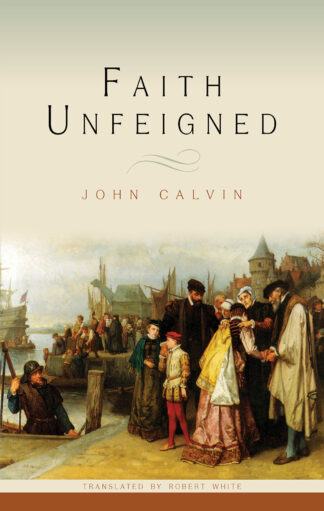
Faith Unfeigned
Four Sermons Concerning Matters Most Useful for the Present Time with a Brief Exposition of Psalm 87
Description
Watson’s fine exposition shows the rich provision made in the Supper for all believers, and lays bare the emptiness of mere sacramentalism. 96pp.

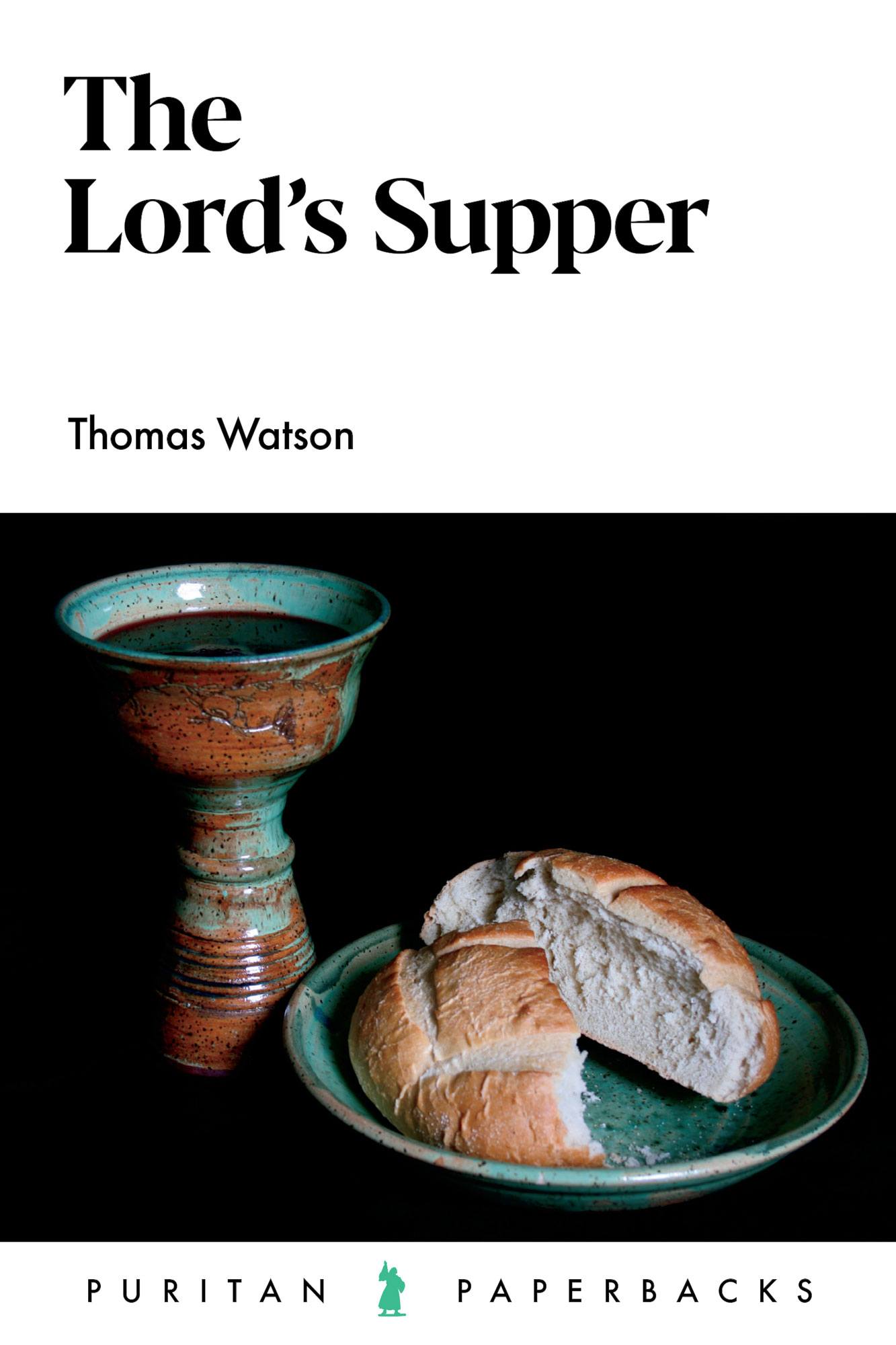
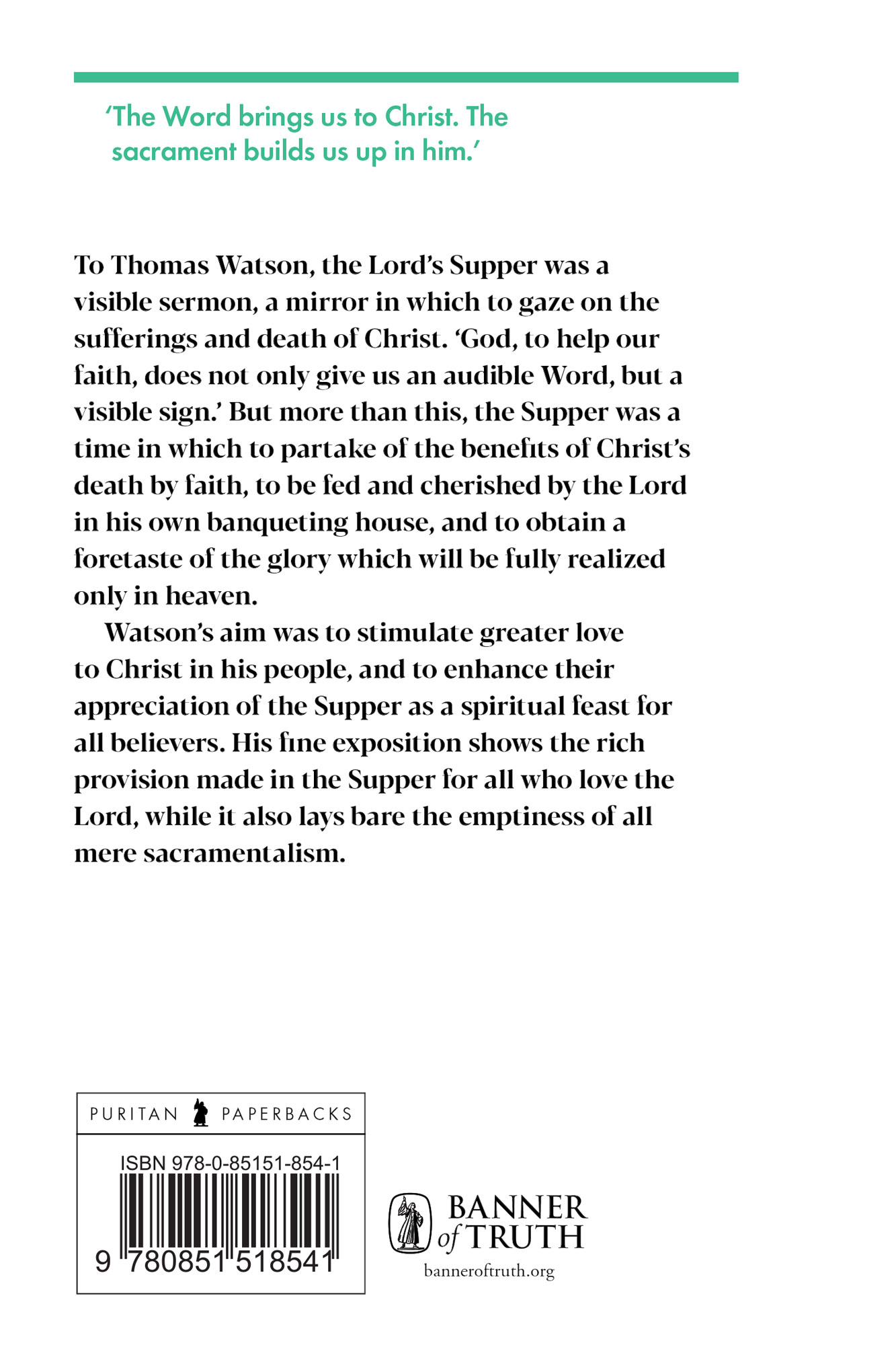
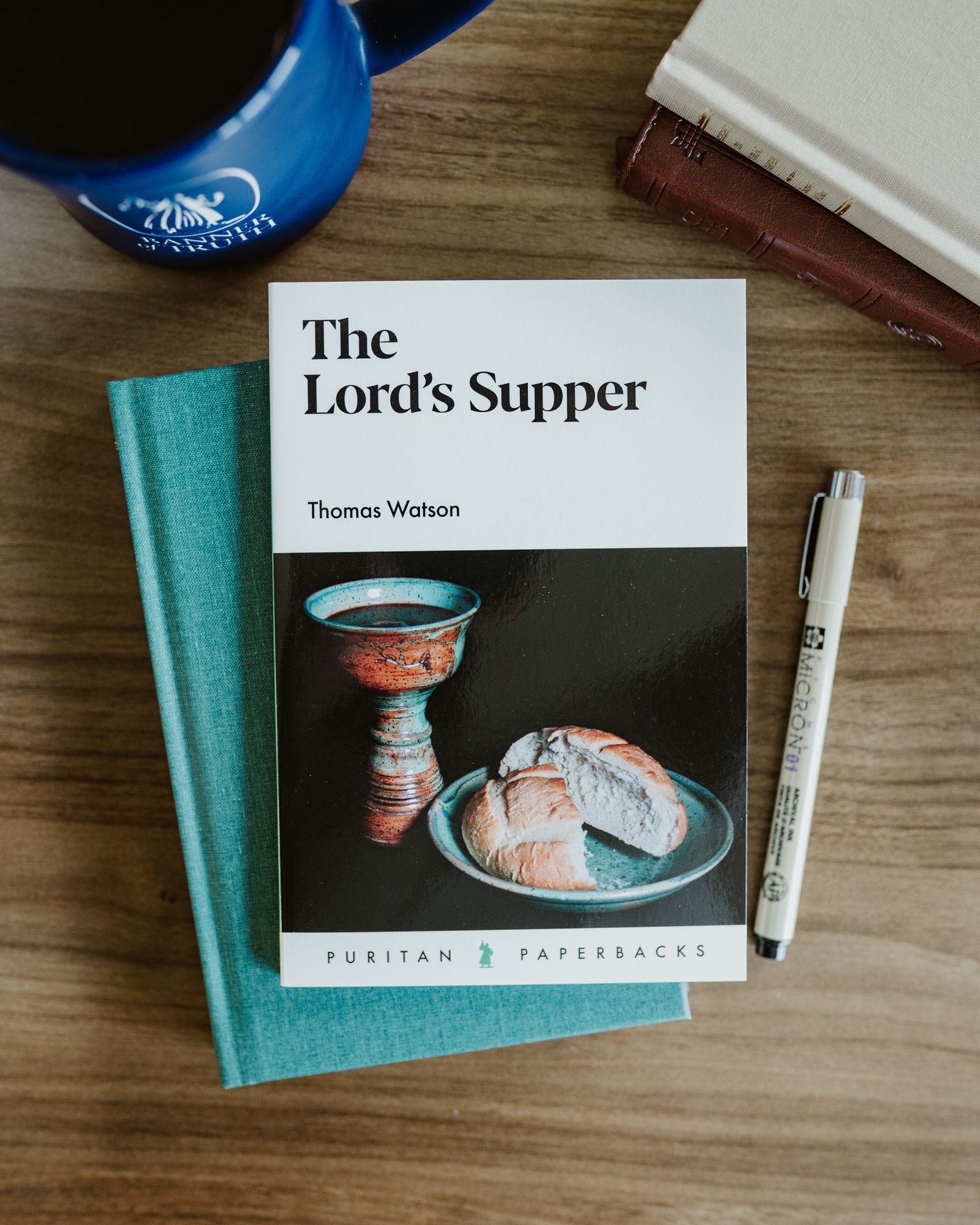
Robert Norman –
Great book which engages with the spiritual benefits of the Lord’s Supper. My only quarrel was that the very start was overly spiritualised.
Aaron –
Concise presentation of Reformed Eucharistic spirituality
If you’ve ever delighted in that pithy Flannery O’Connor quote re: the Eucharist, “If it’s just a symbol, to hell with it,” perhaps like me you’ve also assumed that only Roman Catholics (and Orthodox) affirm the doctrine of the Real Presence. And if, like me, you were raised a Catholic and equate “Real Presence” with transubstantiation, you may be particularly prone to this assumption.
If you’re a Lutheran, or at least familiar with the Lutheran understanding of Real Presence (Christ’s body and blood are “with and under” the bread and wine, though the elements remain) along with the dispute between Luther and Zwingli on this topic, you might assume that those in the Reformed tradition must hold to a strictly memorialist (“just a symbol”) view of the Lord’s Supper. (In which case, if you’ve read Marilynne Robinson’s novel Gilead, you might wonder how it is that the narrator, a Calvin-quoting Congregationalist minister, can display such profound, even mystical, reverence for the Eucharistic elements.)
Even if you’re broadly Reformed, you may assume that your own tradition subscribes to a kind of Zwinglian memorialism. Maybe it does, maybe it doesn’t; it seems there’s a range of opinion here, and in any case, on the subject of the Lord’s Supper there may be nearly as much confusion among lay Protestants as among Catholics. Be that as it may, it is indisputable that Calvin himself, along with theological descendants of his like Thomas Watson (not to mention Cranmer’s Book of Common Prayer), held to a high view of the sacraments, rejecting bare memorialism in favor of Real Presence – just not the Real Presence of either Luther or Rome.
As it turns out, the way Rome defines “Real Presence,” like the way it uses “Catholic,” is not the only option on offer. Just as Reformers like Luther and Calvin, and Puritans like Watson, identified as catholic but not Roman (or orthodox but not Orthodox), so too did they take a high view of the Lord’s Supper, affirming the Real Presence (and all that this entails for our spiritual lives and our approach to the Sacrament) while rejecting Roman transubstantiation. And so, as this book so ably and succinctly demonstrates, a devoutly orthodox, catholic “mere” Christian need not, like O’Connor, submit to Rome’s many distinctive doctrines (e.g., the Treasury of Merit, indulgences, the Marian dogmas, etc.) in order to say with her, “If it’s just a symbol, to hell with it.”
Many thanks to Dr. Gavin Ortlund and his Truth Unites podcast for putting this excellent little book on my radar.
Justin Bond –
“Our sins should humble us, but they must not discourage us from Christ; the more diseased we are, the rather we should step into this Pool of Siloam.”(pg. 61). The Lord’s Supper is offensive to those of us who are morally buttoned up and put together, but to those of us who, upon inspection of our hearts, see crevasses and caverns of darkness, we “fly to Christ[and his Supper] for sanctuary.”(pg. 61). Watson, with his poetic language and use of metaphors, examines the table and brings us to the Lord of the table. I found myself repenting in chapter 7 “Self Examination”, having my heart warmed in chapter 9 “Objections in Coming to the Sacrament”, but most of all thanking Jesus in chapter 4 “Christ’s Love Displayed in the Sacrament”. Watson says it best, “What are we? Not only vanity but enmity. When we were fighting, he was dying; when we had the weapons in our hands, then he had the spear in his side (Rom. 5:8). (pg 24)